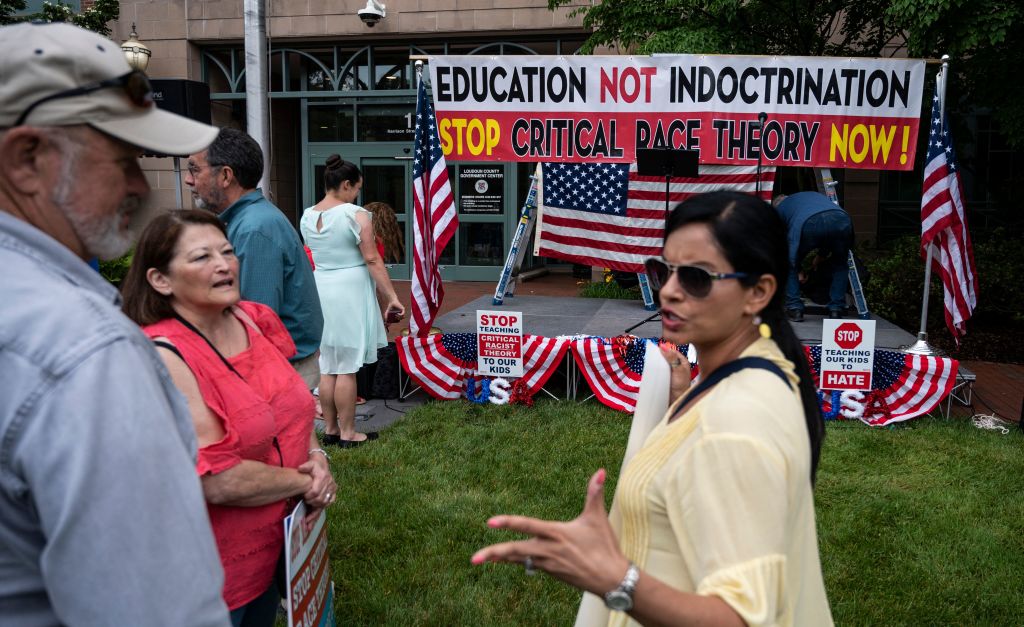On October 10 Mississippi Today ran an article that nicely captures how America’s debate over Critical Race Theory has been marked by far more hyper-politicized nonsense than policy substance.
As the author, Bobby Harrison, points out, GOP officials in Mississippi have been taking a victory lap over their supposed banning of CRT. “Here in Mississippi we are leading the way and we are driving the conservative movement,” Governor Tate Reeves said at a country fair. “We have banned Critical Race Theory — and we have banned vaccine mandates.”
But the CRT bill, Harrison notes, does no such thing. Rather, echoing language passed and debated elsewhere, it states that no public school in Mississippi “shall direct or otherwise compel students to personally affirm” that “any sex, race, ethnicity, religion or national origin is inherently superior or inferior or that individuals should be adversely treated on the basis of their sex, ethnicity, religion or national origin.” The target here isn’t anti-black racism, but rather certain progressive ideas about race — some of which can fairly be placed within the orbit of CRT and others which cannot — that portray all whites as fundamentally tainted by racism, or all blacks as oppressed.
There’s a difference between teaching an idea and forcing students to endorse it, of course, so a law structured like this is unlikely to banish any ideas from the classroom. But even setting that aside — as well as the lack of any apparent example of CRT being taught in a classroom in Mississippi in the first place — the problem is that Reeves is taking a victory lap for language prohibiting something that is already plainly unconstitutional.
;768:[300×250,336×280,320×100];0:[300×250,320×100,320×50]”]The Supreme Court ruled in 1943 that students cannot be compelled to salute the American flag, nor to recite the Pledge of Allegiance, because doing so would run afoul of their First Amendment rights. As a result of this ruling, “outside of a narrow set of exceptions, public schools are prohibited from compelling students to adopt or affirm a given proposition,” Jeffrey Sachs, a professor at Acadia University who researches academic freedom and free speech, told me. “This is especially the case when the proposition involves some weighty moral or political value,” as is certainly the case here.
So the law is pointless for two reasons: no Mississippi school is forcing students to recite CRT-ish bromides — and if one did, it would be slam-dunk unconstitutional. Conservative voters in Mississippi are being taken for a ride — their lawmakers are claiming to have built a sculpture that will ward off tigers, except there are no tigers to be found.
There’s a lot of this going around. Many liberal outlets are making the same mistake in the opposite direction: claiming these laws, which are frequently written in an extremely sloppy manner, ban things they don’t ban. In these cases, the goal is to scaremonger over the laws rather than celebrate having passed them.
Last fall, for example, Slate, Esquire, the Hill and Scientific American, all playing a game of online-rumor telephone involving a nonbinding legislative document, claimed that a Wisconsin law would ban an entire list of words, among them “equity,” “patriarchy” and “woke,” from being uttered in classrooms. This is no truer than the Mississippi lawmakers’ claims that they had purged the banshee of CRT. Other reporting and advocacy has falsely claimed these laws will make it impossible to even talk about racism or the darker sides of American history, which is almost always revealed to be false if you simply read the laws themselves.
To be sure, some genuinely harmful laws have been passed. Florida’s, for example, is written so vaguely that it will undoubtedly have a chilling effect on teachers, potentially making it dangerous for them to (for example) mention the existence of a same-sex spouse. And many of the conservative legislators who in one breath denounce creeping illiberalism on the left — rightly so, in my opinion — then eagerly pass laws that are themselves deeply illiberal, even if the damage is mostly symbolic. So the anti-CRT movement is nothing if not hypocritical.
;768:[300×250,336×280,320×100];0:[300×250,320×100,320×50]”]But what’s so strange about this debate is the unwitting collusion between left- and right-wing partisan actors. Individuals on the left love the idea that they are fighting terribly oppressive laws that will whitewash America’s history, while those on the right love the idea that they are putting their feet down and banning a horribly woke style of thinking (even if, when pressed, they often can’t quite define what it is). These outrage narratives win elections and rack up pageviews.
There are certainly worthwhile debates to be had about the proper way to teach racism, but that’s not what’s going on here. Rather, this is a frustrating example of how the endless hyperpoliticization of everything, paired with the internet’s ability to strip context and degrade the truth, makes everyone dumber.
This article was originally published in The Spectator’s December 2022 World edition.
























